What Visitation Rights Do Grandparents Have?
All states have some kind of visitation law for grandparents, however many require the grandparents petition to the court to grant visitation.
 Written by Background Check Repair
Written by Background Check Repair
Criminal Records | April 29, 2024
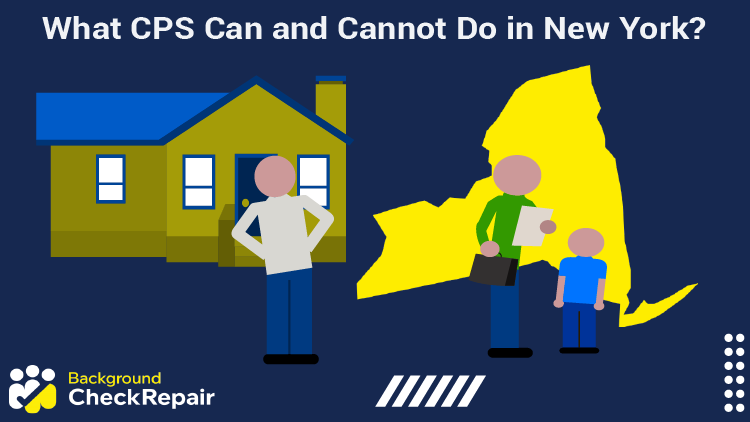
Table of Contents
Whether individuals are facing an imminent CPS investigation or not, knowing what CPS can and cannot do in New York is something that every parent should understand.
The state has the authority to remove your child without your knowledge, speak to your child without you being present, and a number of other actions.
By knowing your rights and the powers that CPS has in NY, individuals will greatly increase their chances of avoiding a lengthy legal battle and even avoid losing custody of their children.
This comprehensive guide outlines exactly what CPS can and cannot do in New York so that parents can be prepared to protect their children from unwarranted government intrusion, if the case is erroneous.
When it comes to what CPS can and cannot do in New York, parents will want to familiarize themselves with both the local laws and the general procedure of a CPS investigation.
Although the laws only vary slightly from state to state it is important that individuals understand local laws such as what constitutes abuse and neglect in New York as well as your rights as a parent in the state.3
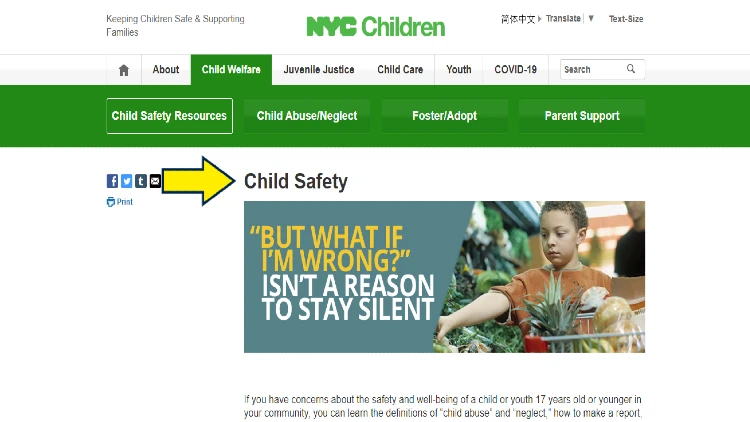
The definitions of child abuse and neglect in NY can include a child being present during verbal abuse between parents.
Similar to law enforcement, CPS will sometimes lie about their powers in order to get individuals to incriminate themselves.
In the state of New York, CPS is a division of the Office of Children and Family Services.7 Like all other states, the main job of CPS in New York is to investigate any reports of child abuse or neglect that may be occurring and, if necessary, move the children out of the home if it is deemed to be in their best interest.
Although they operate similarly to one, Child Protective Services is not a law enforcement agency and will require court orders to carry out certain duties.
In most cases, New York CPS cases are opened after a report of abuse or neglect is made by a mandatory reporter.
Mandatory reporters are individuals who hold certain positions in which they are legally required to report suspicions of abuse or neglect to CPS, such as doctors, teachers, and mental health professionals.2
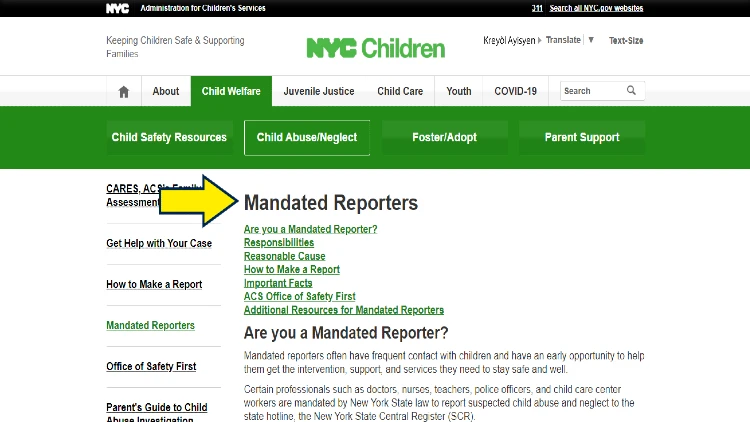
Mandated reporters are professionals who interact with children, and usually have undergone a fingerprint background check, such as teachers, day care workers, and doctors.
Once a credible report is made, CPS will open a case and the investigation will begin.
In most cases, CPS will simply show up at the house unannounced and start asking questions and will likely ask if they can come in and look around. CPS usually wants to speak with the parent that is supposedly committing the abuse or neglect, the victim, other members of the household, and the individual who made the report.
If there is no evidence of abuse or neglect that has taken place, then CPS will likely close the investigation and leave the family alone.
CPS case statistics show that this is how the majority of CPS cases end.9
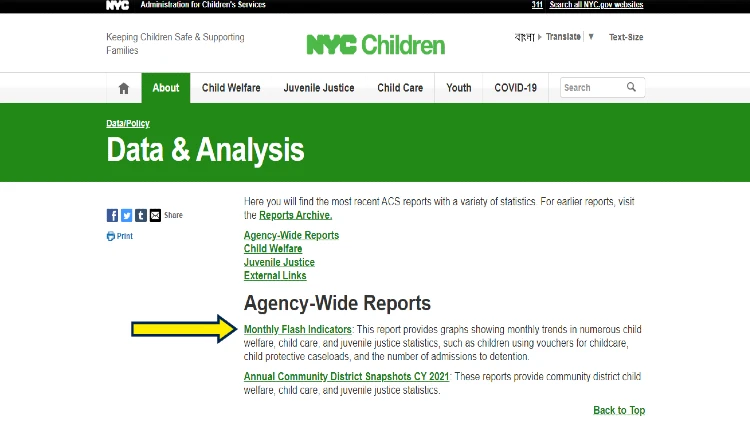
CPS can perform a follow up check if the agency deems it necessary.
On the other hand, if there is evidence of abuse or neglect the investigation will enter its next phase. If the abuse or neglect is minor, such as investigations that are prompted by a child not attending school, then the CPS caseworker will likely develop an action plan for the parent to follow.
As long as the parent follow this and conditions improve for the child, then CPS will usually close the case. However if the plan is not followed, or the abuse or neglect is severe, then the Child Protective Service agent will likely get the courts involved.
Once CPS has contacted the courts with the evidence of possible abuse or neglect, the parent will be asked to appear for a hearing in front of a judge in which the CPS caseworkers will go over their findings and the judge will ask questions of the parent.
If there is significant evidence of severe abuse or neglect, it is highly likely that the custody of the child will be temporarily transferred to someone else, or if another family member is not available, put the child in the foster care system.
At this point, the investigation will continue until a decision is made by a judge based on the findings of CPS as to whether custody of the child will be taken away from the parent, or if the child can continue living with the parent.
Although what is considered abuse is fairly clear to most individuals, what is considered neglect can be somewhat surprising under NY law.
This is why it is so important to know the local laws as to what is considered abuse or neglect.4
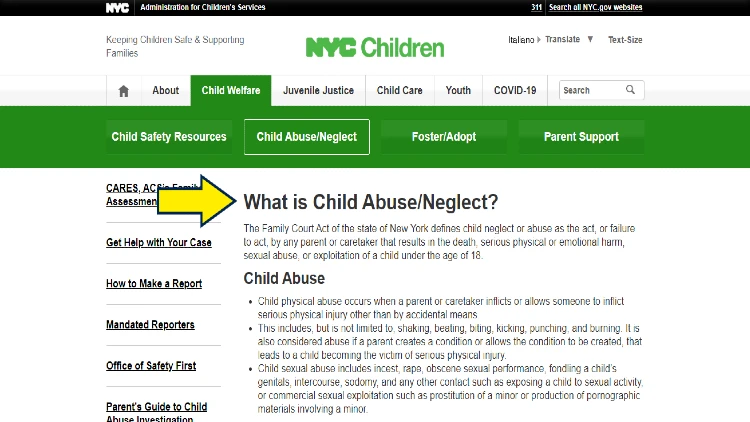
The law states that any abuse that could cause emotional harm is child abuse.
Those with questions like, at what age is it okay to leave my children home alone, should research these questions in order to be prepared for any questions from the CPS worker investigating.
Even for individuals that do not have children, it’s important to be able to recognize the signs of abuse and neglect as well as know where to report it.8
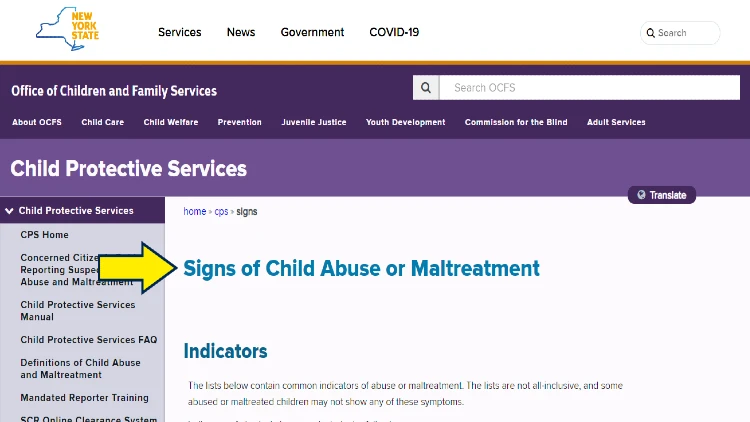
The state of New York provides tips and clues to look for that indicate a child is being emotionally or physically abused or neglected.
Anyone can report suspected child abuse or neglect by contacting their local CPS office.7 Several states also offer online abuse reports.
When wondering what CPS can do during the course of their investigation, some of the powers might come as a surprise.
However, individuals should remember that CPS is awarded these powers in the best interest of the children they are investigating.
One of the most common powers that CPS will exercise during an investigation is their ability to talk to children of suspected abuse without the parents being notified. This is often done while the child is at school with the help of the school administration.
The main reason that CPS workers are granted this power is to prevent situations in which a parent can coach their child into lying to a CPS worker in order to cover up abuse or neglect.
Should there be evidence of severe abuse or neglect, CPS also has the power to remove children from the household after obtaining a court order.
This can happen while the child is at school or in another location, other than the home.
Once children have been removed from the household due to abuse or neglect, CPS can also recommend to the judge in the case that parental rights be taken away.
Regaining parental rights can be a difficult process.
In regards to what CPS cannot do, there are a few things that individuals should know.
For example, CPS breaking the law during the course of an investigation could cause the case to be dismissed automatically.
CPS will likely ask to come inside a home and look around during their investigation, however individuals do not need to let them in.
New York CPS can only enter a home if given permission or with a court order.
CPS is also known to ask individuals to take drug tests as drug use is often considered a form of neglect.
However, CPS can only force a parent to take a drug test with a court order.
When it comes to parental rights during a CPS case, individuals are entitled to a lawyer and also have the right to not answer any questions asked by the CPS worker.
It is always advised that individuals contact a lawyer as soon as a case is opened so that they can have an experienced professional guide them through the process which will give them the best chance of retaining custody of their children.
Knowing what CPS can and cannot do in New York is essential to understand how to get a CPS case dismissed.
Unlike criminal charges which have a number of indicators that your lawsuit might be dismissed, CPS cases are only dismissed in two different ways: by the CPS case worker, or by a judge.
In most cases, CPS will close the investigation themselves if there is no evidence of abuse or neglect. Having a lawyer can help get an investigation dismissed quickly as they can advise when to cooperate with CPS so that they can investigate and close the case as fast as possible.
However, if there is abuse or neglect evidence and the case goes to court, the process to get it dismissed becomes more difficult.
To get a CPS case dismissed in court, individuals will need to file a motion for dismissal with the judge. This is most often done on grounds of lack of evidence, however in certain cases, they can be dismissed due to procedural issues with the case such as the CPS worker trespassing on private property during their investigation.
Once the case is dismissed, the first concern on many individuals’ minds is the length of time a CPS case will remain on their file. However, the majority of cases will not appear on your record at all. CPS cases rarely involve criminal charges so there should be no reason for the case to appear on what shows up on a background check for employment.
Much of this concern is related to individuals hearing about a CPS background check. However this refers to the child care background check, sometimes called child abuse background investigations that is required for teachers, daycare workers, and other jobs that require working closely with children.6
If individuals are concerned about their criminal history, knowing how to conduct a records check on themselves will be of help.
There are websites that will provide a complimentary criminal history check.
When it comes to does CPS notify the other parent, the answer is that they do in certain situations.
If the other parent is someone that could potentially take custody of the child, such as parents with dual custody, they will likely be contacted.
As far as, does CPS have to notify the other parent, the answer is no.
Parents that can not care for the child or are otherwise not involved with the child’s life will not be contacted.
The term, CPS non custodial parent, is used to describe the parent that does not have primary custody.
This can be a parent with only partial custody or visitation rights or can be a parent that is not involved at all.
The non offending parent in CPS case can play a major impact on the case’s outcome.
The non offending parent will likely take custody of the child during the course of the investigation and is also able to appear in court to ask questions, provide evidence and provide testimony on the case.
The rights of the non offending parent are similar to the rights of the offending parent.
They are able to get a lawyer and appear at any hearings for the case so that they can ask questions and provide any evidence to the judge.
The non offending parent evaluation is used to determine if the non offending parent is able to take care of the child. In cases potentially involving severe abuse or neglect, the non offending parent will often be given temporary custody.
The grounds for involuntary termination of parental rights in New York are fairly straightforward.5
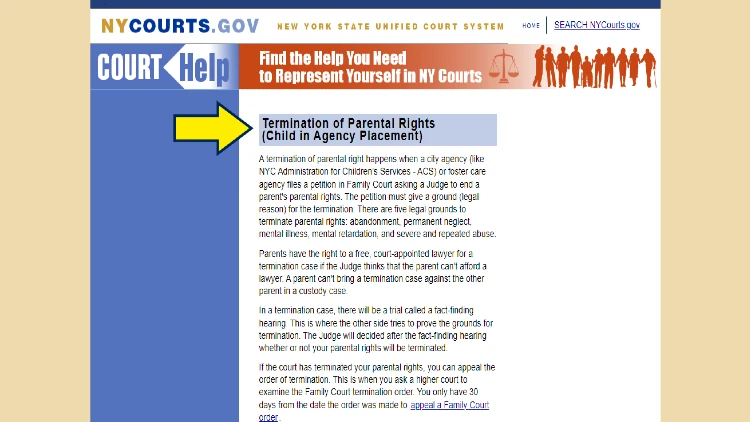
Terminating parental rights is performed through the courts.
Parental rights can be taken away if there is evidence of severe abuse such as physical or sexual abuse or severe neglect such as failure to provide for the basic needs of the child or child abandonment.
Knowing what CPS can and cannot do in New York can make the difference between keeping custody of your children and losing them forever. Although understanding the laws and procedures involved can help tremendously, it is extremely important to consult an attorney whenever possible.
Facing a CPS investigation is almost never a good thing, however it is never a good idea to panic. Individuals should educate themselves on the way CPS works as an agency and what laws they rely on during the course of their investigation.
Knowing what CPS can and cannot do in New York is essential to retaining custody of your children during an investigation.
All states have some kind of visitation law for grandparents, however many require the grandparents petition to the court to grant visitation.
The rights as a parent in a CPS case are similar to those of someone accused of a crime. Individuals have the right to an attorney, as well as the right to deny CPS workers entry into their home, and have the right to not answer any questions from CPS.
There is currently no way to check if there is any information about an individual in the Statewide Central Register file, however an individual will not be put into the file unless a CPS investigation revealed that the individual was a perpetrator of abuse or neglect. Unfounded CPS investigations will not result in information being added to the central registry.
There is no way to have your name removed from the statewide central register file.1
Individuals can pursue legal action against individuals that filed false child abuse or maltreatment reports in civil court. Individuals will only be added to child abuse registries if the alleged abuse was proven to have taken place.
A CPS background check includes an FBI criminal history check which will go back forever and can even reveal criminal history information that has been sealed or expunged.
A foster parent background check is the federally mandated background screening, also known as a child care background check, that all individuals considering foster care must pass in order to be eligible.
Getting a CPS case dismissed in Texas will require individuals to submit a motion for dismissal to the judge overseeing their case. This motion can be filed for numerous reasons but most will make the case that there is not enough evidence to justify the investigation.
To get a CPS case dismissed in California, individuals will likely need to file a motion for dismissal with the judge, citing reasons such as lack of evidence or procedural issues that make the investigation illegitimate.
In Pennsylvania, CPS is able to talk to children without the parents knowledge to see if the child has experienced anything that could be considered abuse or neglect. However, CPS is not able to enter the individuals home without permission or a court order.
CPS workers in Michigan are able to recommend to the courts that a child be removed from home and that parents should have their parental rights taken away. However, they are not able to forcibly enter a home or force someone to take a drug test without a court order.
Looking up a person’s place of employment will likely require individuals to run a social media check on the individual to see if their employer listed them in the company’s social media accounts.
Digging up someone’s current job location for child support will usually require the help of law enforcement who can find out where someone works using information from databases maintained by the IRS and SSA.
1Child Welfare Information Gateway. (2018, May). Establishment and Maintenance of Central Registries for Child Abuse or Neglect Reports. Child Welfare Information Gateway. Retrieved December 15, 2022, from <https://www.childwelfare.gov/topics/systemwide/laws-policies/statutes/centreg/>
2City of New York. (2022). Child Abuse/Neglect Mandated Reports. NYC. Retrieved December 15, 2022, from <https://www.nyc.gov/site/acs/child-welfare/mandated-reporters.page>
3City of New York. (2022). Child Safety. NYC. Retrieved December 15, 2022, from <https://www.nyc.gov/site/acs/child-welfare/ChildAbuseNeglectKid.page>
4City of New York. (2022). What is Child Abuse/Neglect? NYC. Retrieved December 15, 2022, from <https://www.nyc.gov/site/acs/child-welfare/what-is-child-abuse-neglect.page>
5New York State Unified Court System. (2022). Termination of Parental Rights (Child in Agency Placement). NYCourts.Gov. Retrieved December 15, 2022, from <https://www.nycourts.gov/courthelp/family/parentalRights.shtml>
6Office of Children and Family Services. (2022). CCDBG Background Checks. New York State. Retrieved December 15, 2022, from <https://ocfs.ny.gov/programs/childcare/ccdbg/>
7Office of Children and Family Services. (2022). Child Protective Services. New York State. Retrieved December 15, 2022, from <https://ocfs.ny.gov/programs/cps/>
8Office of Children and Family Services. (2022). Signs of Child Abuse or Maltreatment. New York State. Retrieved December 15, 2022, from <https://ocfs.ny.gov/programs/cps/signs.php>
9US Department of Health and Human Services. (2022). Child Maltreatment 2019: Summary of Key Findings. Child Welfare Information Gateway. Retrieved December 15, 2022, from <https://www.childwelfare.gov/pubpdfs/canstats.pdf>
We use cookies to ensure that we give you the best experience on our website. If you continue to use this site we will assume that you are happy with it